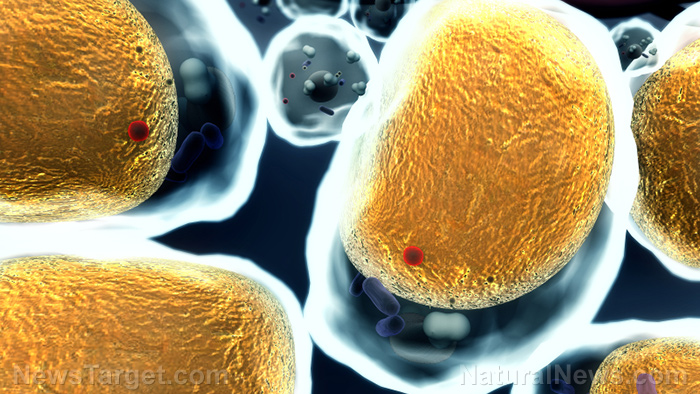
CHOLESTEROL SOURCES, HEALTH BENEFITS AND USES [with Comment by PHB]
Frances Bloomfield

Cholesterol is a waxy, fatty substance chemically classified as a sterol. It is not considered an essential nutrient since the human body, the liver specifically, is able to produce cholesterol naturally. The body makes cholesterol because it plays several key roles, the most important of which are assisting in the creation and repair of cells and the production of steroid hormones.
Not all cholesterol is helpful, however. One particular type of cholesterol known as low-density lipoprotein (LDL) cholesterol adds to arterial fatty build-up, narrowing the arteries and increasing the risk for stroke and heart attack. Conversely, high-density lipoprotein (HDL) cholesterol protects the heart by removing LDL cholesterol and ensuring it doesn’t clog up the arteries.
Unhealthy eating habits, a sedentary lifestyle, and smoking or exposure to tobacco smoke will contribute to greater levels of LDL cholesterol, otherwise known as “hyerlipidemia”. Boosting HDL cholesterol levels can be done becoming more physically active, cutting down on smoking, and consuming heart-healthy foods such as those high in monounsaturated and polyunsaturated fats. These include olive oil, avocados, fatty fish, soy-based products, whole grains, and legumes. Foods that are loaded with considerable amounts of trans fats or hydrogenated fats — like margarine, cakes, fast foods, and doughnuts — should be avoided since these can lower HDL levels.
Medicinal uses for cholesterol
Like what was mentioned previously, cholesterol is necessary for steroid hormone production. Steroid hormones keep the body functioning and developing normally, and as such there are many types of important steroid hormones. The sex hormones estrogen, progesterone, and testosterone are steroid hormones that are needed for the body to maturate properly and for reproduction. Cortisol is another cholesterol-derived steroid hormone, and one that regulates blood sugar levels and stimulates the release of energy. A lack of sufficient steroid hormones can lead to problems with sex, digestion, bone health, and even mental health.
The liver both generates cholesterol and calls for it in order to create bile. This greenish fluid is required by the digestive system to break down the fat from foods and absorb the nutrients. Fat-soluble vitamins like vitamins A, D, and E can’t be absorbed into the body without bile, making bile and cholesterol all the more crucial for overall health. Moreover, undigested fat can enter the bloodstream and block the arteries, so breaking them down and digesting them is absolutely necessary.
Cholesterol acts as a structural component and protective barrier for cells; additionally, cholesterol can help cells adjust to temperature changes better. Too much or too little cholesterol can affect the cells’ ability to produce and metabolize energy, making it all the more vital to get the right amount of cholesterol on a daily basis. The nerves use cholesterol for insulation as well.
Cholesterol is especially valuable for babies, who get it from their mothers’ breast milk. Without cholesterol, a baby’s brain, immune system, and nervous system would not be able to develop properly. The growing brain of a baby needs cholesterol and other breast milk fats most of all since the brain requires these fats to create myelin. This is the fatty sheath around nerve fibers that make it possible for nerves to carry information throughout the body.
Body systems supported by cholesterol
Because of its numerous contributions to the body’s many functions, cholesterol can be thought of as good for one’s health as a whole. The heart, digestive system, and liver are the parts that benefit the most from good amounts of HDL cholesterol as it keeps these parts working properly.
Where to learn more
- Cholesterol is NOT the enemy: It’s inflammation that’s making you fat and killing you slowly
- Cholesterol is an essential nutrient for human health that saves lives, explains doctor
- Cholesterol medications linked to major health issues
- Cholesterol’s Good Side: Cholesterol may Guard Against Infection and Strengthen Immunity
- Lower Cholesterol Naturally- Prevent Cardiovascular Disease
Summary
Cholesterol can be both good and bad. Good cholesterol maintains good health by assisting in the production of steroid hormones and bile, protecting the cells, and helping babies grow properly. Moreover, good cholesterol can help decrease bad cholesterol. As such, good cholesterol can be thought of as a heart-, digestive system-, and liver-healthy substance.
Sources include:
https://www.naturalpedia.com/cholesterol-sources-health-benefits-and-uses.html
NOTE: Cholesterol is needed to build connective tissue that makes up the cell walls of our body. With age the brain cells begin to deteriorate, thus requiring more cholesterol to rebuild them. Contrary to the advice of medical doctors, higher cholesterol is not harmful, for the brain needs it to prevent Altzheimers disease from developihg. ---PHB
